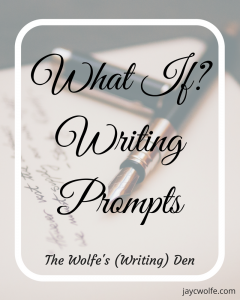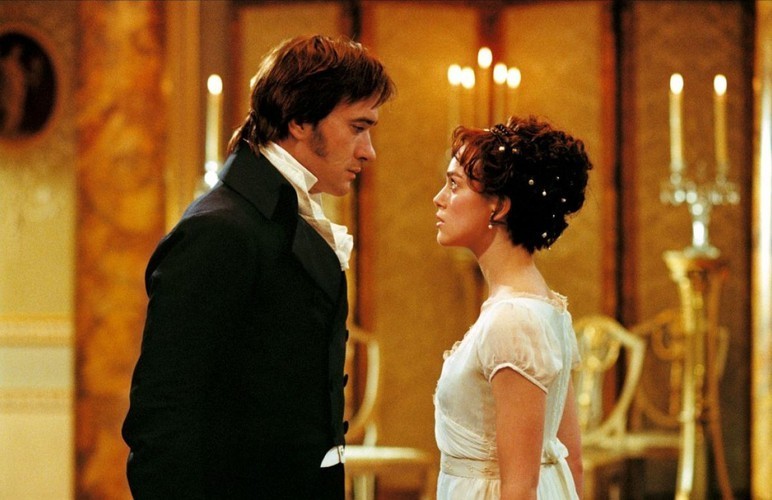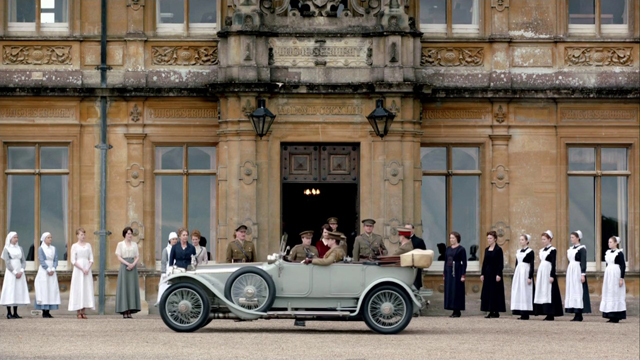by Naomi L. | September 13, 2017 | Blog, Creative Writing, What If? Writing Prompts |
This past week saw yet another anniversary of the September 11 attacks as well as the destruction left in the wake of a record-breaking hurricane sweeping the Atlantic, the second to hit the U.S. in less than two weeks. Remembering watching the news in school 16 years ago and wondering how much more devastating the effects of climate change can become have gotten me thinking a lot about the past and future of our world, so this week I was inspired to share another set of “What If?” Writing Prompts in the theme of history. What sorts of stories about historical events can you create from these ideas? Good luck!
 What if… global political leaders had started working to address climate change decades sooner?
What if… global political leaders had started working to address climate change decades sooner?
What if… the terrorist attacks of September 11, 2001, had never happened?
What if… America had never started the Iraq War?
What if… Europe hadn’t begun to form what would eventually become the European Union after World War II?
What if… the Founding Fathers had established America as a direct democracy instead of an electoral college?
Enjoy writing more stories about history!
If you have any “What If?” writing prompt suggestions (for any theme), please feel free to share them in the comments below. Ideas I like may be featured in future “What If?” posts, with full credit and a link to your blog (if you have one)! Also, if you’ve written a piece based on an idea you’ve found here, be sure to link back to the respective “What If?” post. I would love to see what you’ve done with the prompt! Thank you!
by Naomi L. | July 5, 2017 | Blog, Creative Writing, What If? Writing Prompts |
Yesterday was Independence Day in the US, so here’s a special set of “What If?” Writing Prompts to celebrate! This week’s batch features more prompts in the history genre, specifically American history! See what historical tales you can spin from these ideas, and feel free to add more of your own! Have fun!
 What if… every state in the US were its own country?
What if… every state in the US were its own country?
What if… the “Wild West” hadn’t been settled in the 18th century?
What if… the stock market hadn’t crashed in 1929?
What if… the Japanese attack on Pearl Harbor had never happened?
What if… the US hadn’t undergone McCarthyism in the ’50s?
Good luck writing your own stories about American history!
If you have any “What If?” writing prompt suggestions (for any theme), please feel free to share them in the comments below. Ideas I like may be featured in future “What If?” posts, with full credit and a link to your blog (if you have one)! Also, if you’ve written a piece based on an idea you’ve found here, be sure to link back to the respective “What If?” post. I would love to see what you’ve done with the prompt! Thank you!
by Naomi L. | May 31, 2017 | Blog, Creative Writing, What If? Writing Prompts |
After researching Memorial Day for my last two posts, I was inspired to write another set of “What If?” Writing Prompts. In keeping with the themes of war and the past, today’s batch features prompts in the history genre. See what historical tales you can create from these ideas, and feel free to add more of your own! Enjoy!
 What if… none of the major conflicts of history had been resolved with war?
What if… none of the major conflicts of history had been resolved with war?
What if… the territories of the British Empire had been conquered by another nation instead?
What if… the American Civil War had never happened?
What if… the atomic bombs had never been dropped on Hiroshima and Nagasaki?
What if… the American Civil Rights Movement of the ’50s and ’60s had failed?
Good luck writing some more historical tales!
If you have any “What If?” writing prompt suggestions (for any theme), please feel free to share them in the comments below. Ideas I like may be featured in future “What If?” posts, with full credit and a link to your blog (if you have one)! Also, if you’ve written a piece based on an idea you’ve found here, be sure to link back to the respective “What If?” post. I would love to see what you’ve done with the prompt! Thank you!
by Naomi L. | September 7, 2016 | Blog, Creative Writing, What If? Writing Prompts |
Yep, it’s another set of “What If?” Writing Prompts for you all! Since readers seemed to enjoy my list of five reasons I love historical fiction, I thought today I’d complement it with a new batch of history-themed prompts. What stories of the past can you create from these ideas? Good luck!
 What if… the Confederacy had won the American Civil War?
What if… the Confederacy had won the American Civil War?
What if… the Meiji Restoration, which returned imperial rule to Japan and catalyzed the nation’s modernization, had never happened?
What if… Africa had never been colonized by Europe?
What if… the Allies had failed to decrypt the Enigma code, used by Nazi Germany to encrypt military communication during World War II?
What if… Al Gore had won the 2000 U.S. presidential election?
Have fun writing some more historical tales!
If you have any “What If?” writing prompt suggestions (for any theme), please feel free to share them in the comments below. Ideas I like may be featured in future “What If?” posts, with full credit and a link to your blog (if you have one)! Also, if you’ve written a piece based on an idea you’ve found here, be sure to link back to the respective “What If?” post. I would love to see what you’ve done with the prompt! Thank you!
by Naomi L. | July 27, 2016 | Blog, Creative Writing, Featured |
If you read my recent post about the progress on my 2016 reading goals, you may have noticed I’ve been reading a lot of period fiction this year, and it’s really been inspiring my fascination with history! I love reading stories set in the past for much the same reason I enjoy science fiction and fantasy: they show me a world I could never see or experience for myself. And what more could you want from a fiction genre?
So continuing through my “five reasons” series, here’s a list of five reasons I love historical fiction. Enjoy!
1) It offers a deeper insight into human history.
History is fascinating, but there’s only so much we can learn from textbooks and history lessons in school. It’s one thing to read facts about past events, it’s another to live them. And while living said events ourselves would only be possible with a time machine, we can at least get a taste of what they were like through the immersive experience of narrative. Action, emotion, drama, all the things that make us human have the power to make a historical account much more engaging and relatable. That’s why I feel like I learn more about history from certain fiction books than I ever did from history lessons growing up: you can only really understand the driving forces behind human history when you feel like you’re reading about, you know, actual humans!
2) It shows the evolution of human behavior.
Reading many works of historical fiction set in various time periods gives readers the opportunity to observe how human behavior has changed over the centuries. What ancient civilizations once believed to be the work of the gods, we now approach as topics of science, and several subjects that seem commonplace to us today were once considered too shocking and scandalous to even be mentioned in proper society. Human beings drastically alter their ways of thinking over generations, so indulging in historical fiction offers an entertaining means of seeing those changes: through a narrative timeline!
3) It reveals the most consistent traits of human nature throughout time.
On the other hand, historical fiction can also show us the things that haven’t changed over time. After all, no matter how far we’ve come as a species since the dawn of mankind, human beings technically still are and always have been animals. There’s a reason history tends to repeat itself, and many authors like to explore the most consistent patterns of society by implementing elements of past events into present- and future-setting stories. This is where historical fiction ties in with many futuristic works: the most fundamental human traits – love, fear, survival instinct, social bonds, etc. – often become the driving forces behind major events like war and revolution, regardless of generation or time period, past or future. And speaking of the future…
4) It helps predict the future course of human history.
It may seem odd at first to think knowing the past is the key to predicting the future, but my dad always taught me that it’s important to study history because only by understanding humanity’s past mistakes can we hope to avoid repeating them. When you have a clear picture of the direction in which the human race has been heading for the past few millennia, it becomes easier to predict which areas we’ll progress in and which patterns we’ll keep falling into. And as mentioned above, this often makes for great futuristic fiction material. For example, technology continues to improve at an accelerated rate, but there will always be people who try to use it for the wrong reasons. If history really does repeat itself, then the one thing you can expect with absolute certainty from future generations is that they’ll keep making the same mistakes their ancestors did for thousands of years!
5) It makes for entertaining reading!
This is just my opinion, of course, but there’s something vastly entertaining about diving into a book set in a past time period. It’s like stepping into a time machine and being transported back to days when people acted and thought differently, technology wasn’t quite as advanced, and society had expectations that would greatly contrast with our modern-day views. I especially enjoy historical literature that was written during the time period in which it takes place, as it offers the additional insight of authors who experienced those times firsthand. To be able to see the past through the eyes of people who lived it is what makes historical fiction such a unique and fascinating genre!
What about you? Do you enjoy historical fiction? What do (or don’t) you like about it?
 What if… global political leaders had started working to address climate change decades sooner?
What if… global political leaders had started working to address climate change decades sooner?
 What if… every state in the US were its own country?
What if… every state in the US were its own country?


Recent Comments